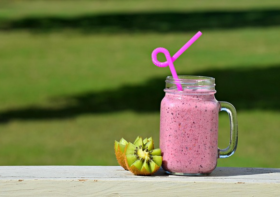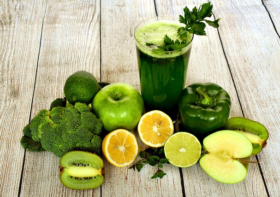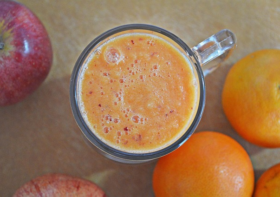Plant Vs. Animal Protein: What is the difference and which is best?
Vegan community claims Animal Protein cause cancer. Animal protein supporters claims animal protein makes body healthier such as the famous Keto Diet, Aiken’s Diet and even cures cancer. Which side is right? Which is better?
What is Protein?
They don’t call protein one of “the building blocks of life” for nothing. This macro-nutrient makes up the major component of all our cells and provides the essential amino acids that keep our bodies up and running. Problem is, some of us aren’t getting as much of it as we should be.
A true protein deficiency is very rare in the United States—though it can be seen in people who have anorexia, cancer, or, in the case of severe malnutrition, undiagnosed Crohn’s disease—but sometimes, vegans or people who follow a raw food diet could find themselves running a little low, says Leslie Bonci, MPH, a nutritionist, owner of Active Eating Advice, and nutrition consultant for the Kansas City Chiefs. (Vegetarians who eat dairy or even just eggs are unlikely to have a problem meeting their protein goals, she says.)
“We have all these new plant-based foods in the marketplace, but [in terms of protein], they’re not all created equal,” Bonci explains. Take milk, for example: One cup of 1% cow’s milk contains about 8.5 grams of protein, while a cup of almond milk only contains just 1 gram. Plus, most plant-based proteins aren’t complete proteins. So when people changes to plant-based food, they need to make sure they still have enough proteins.
Essential Amino Acids
Proteins are made up of amino acids. A person’s body needs a balance of all 22 types of amino acids to function correctly.
The body cannot produce nine of these acids, called essential amino acids.
A complete protein source refers to a type of food that contains all nine.
Having the right balance of amino acids can build muscle and help the body to recover from exercise quickly. Understanding the differences between plant and animal proteins is important for anyone who wants to ensure that their diet is healthy.
In this article, we look at the differences between animal and plant proteins. We also investigate the effects on health, describe which type is better for bodybuilding, and list the best sources of each.
Difference between Plant and animal protein
Plant and animal proteins vary in the number of amino acids they contain.
One of the main differences between plant and animal proteins involves their amino acid contents.
Amino acids are the building blocks of protein. When the body digests the proteins in food, it breaks them down into amino acids.
The body may need different amino acids at different times. Many people believe that the diet should include complete sources of protein, which contain all nine essential amino acids.
Some animal products are complete sources of protein, such as:
- fish
- various types of eggs
- dairy products, such as cheese, milk, and whey
- red meat from cows, bison, and deer
- poultry from sources such as chickens, turkeys, and quails
- meat from less common sources, including boars, hares, and horses
- Most plant proteins are incomplete, which means that they are missing at least one of the essential amino acids.
However, some plant-based foods, such as quinoa and buckwheat, are complete sources of protein.
It is important for vegetarians and vegans to mix their protein sources and ensure that they are getting all of the essential amino acids.
Also, keep in mind that some sources of plant protein may take longer for the body to digest and use.
The following are examples of plant-based foods rich in protein:
- grains
- lentils
- nuts
- beans
- legumes
- certain fruits, such as avocados
- soy
- hemp
- rice
- peas
- Many other nuts, grains, and vegetables also contain high amounts of protein.
Foods rich in protein can have widely ranging nutritional profiles.
Certain sources of animal protein can contain high levels of heme iron and vitamin B-12, while some plant-based foods lack these nutrients.
On the other hand, plant-specific nutrients, called phytonutrients, and some antioxidants are absent from sources of animal protein.
Animal products contain saturated fat and higher levels of cholesterol than sources of plant protein. A person may wish to avoid animal products for these reasons.
Many used to believe that dietary cholesterol was associated with cardiovascular disease. While recent evidence suggests no significant link, the Institute of Medicine (IOM) still recommends limiting dietary cholesterol.
Fiber is another important factor. Only plant-based foods contain fiber, which helps to keep the digestive system balanced.
Eating more plant protein may also improve a person’s overall health.
Results of a 2016 meta-analysis suggested that eating more animal protein, especially that derived from processed red meat, may increase the risk of dying from cardiovascular disease.
However, researchers noted that they only found the link between animal protein and cardiovascular disease in people with at least one lifestyle-related risk factor, such as smoking, heavy alcohol intake, or being overweight or obese.
The results also indicated that eating more plant protein may help to reduce this risk and others.
In general, the best way to cover a person’s dietary needs is to eat a wide variety of foods.
Which is better for building muscle?
man drinking protein drink at the gym
Athletes often choose whey protein to help build muscle.
Athletes and others looking to increase muscle mass and reduce the amount of time it takes to recover from exercise often pay close attention to their protein intake.
Protein helps repair and build up the muscles after a rigorous workout.
Many athletes turn to whey protein for building muscle. This type of protein is easier for the body to break down and absorb, which can give whey an edge over other sources, such as meat, eggs, and vegetables.
Regarding plant-based sources, one study suggests that that rice protein isolate may offer similar benefits to whey protein.
Many people recommend consuming a combination of plant-derived proteins after a workout. This can provide the body with a range of amino acids.
Best sources of plant and animal proteins
Simply getting enough protein in the diet may be more important than focusing on the kind of protein.
One study found that including above-average levels of protein in the diet improved signs of muscle health, such as lean mass and strength in the quadriceps. The researchers noted that the amount of protein was more important than the type.
However, some sources of protein may be better for general health. For example, fish and white meats tend to contain less fat than red meats.
Takeaway
For many people, the choice between animal and plant proteins involves a range of considerations.
Rather than focusing on a single type of protein, it may be better to focus on eating a wide variety of foods. This can help ensure that a person gets a healthful balance of amino acids and other vital nutrients.
Anyone with specific questions about protein requirements and sources should speak with a dietitian.



Leave a Reply